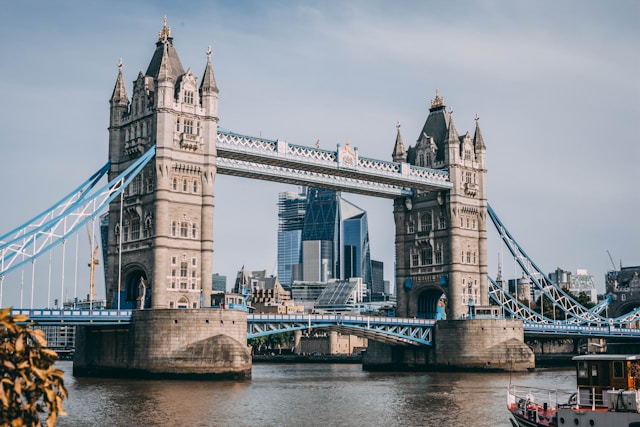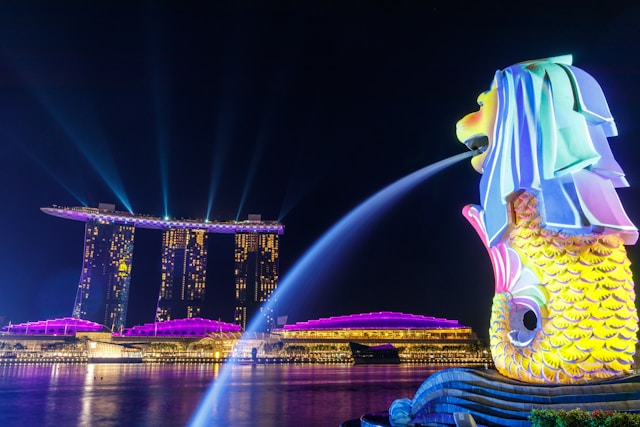Overview
Course Outline
Schedule & Fees
Course Methodology
Instructor-led training that uses interactive learning methods, including class discussion, small group activities, and role-playing
Course Objectives
To increase the participants' awareness and understanding that mechanical integrity of process equipment and piping systems depends jointly on the proper design, operation, condition assessment, and maintenance of the equipment, underscoring their vital individual and team roles in managing change.; Provide participants with practical and sound methods and tools to enable them to carry out basic design calculations for pressure equipment in accordance with applicable industrial codes, standards, and best practices.; To provide the participants with a clear understanding of the degradation mechanisms that process equipment could be subjected to over their operating life, how to identify them, predict and determine their impact, and what appropriate measures can be taken to prevent and control the resultant damage.; To provide the participants with the knowledge and failure analysis skills they need to conduct damage and failure analysis so as to prevent similar failures from happening.; To enhance the knowledge and skills of the participants in hazard identification and analysis, and in risk assessment and management.
Target Audience
This is a 'core' course for the professional development of engineers, technical professionals, operations and maintenance personnel involved in design, projects, operation, inspection and maintenance of oil & gas plants, oil refineries & petrochemical plants, and power plants.
New graduates will gain essential and integrated knowledge about pressure equipment and piping systems design and the significance of appropriate design, operation, and maintenance on their mechanical integrity. Delegates will enhance their knowledge and expertise in pressure equipment and piping system design and will be equipped with structured procedures and effective guidelines to perform design calculations.; Participants will gain a sound working knowledge of the interdependence of design, operation, and maintenance on integrity, reliability, and cost-effectiveness of piping systems.; Participants will extend their knowledge of the requirements and application of relevant sections of the ASME Boiler and Pressure Vessel Code and B31 Piping Codes, as well as relevant API Codes, standards, and Recommended Practices such as API 510 and 570 in pressure equipment and piping system design, operation, inspection repairs, and alterations.; The delegates will gain sound and practical understanding of the major degradation mechanisms that affect process equipment and piping systems, how to predict them, how to assess their impact on process equipment over their operating life, and how to prevent and control these degradation and damage mechanisms using best industry practices including API 571 and API 580.; Participants will add to their ability and skills in process equipment and piping failure detection and analysis, estimating failure consequences, and conducting level 1 fitness-for-service assessments in accordance with API/ASME 579.
Target Competencies
n/a
Module 1:
Process Equipment and Piping Systems: Application, Design & Operation
Day 1:
Key Design Considerations, Guidelines and Practices
-
Process Equipment - An Overview
-
Plant Integrity and Reliability
-
Fitness for Purpose
-
Service conditions, equipment sizing, and functional performance
-
Business-Focused-Facilities – Appropriate quality at lowest life cycle cost
-
Safety by Design
-
Worst foreseeable credible scenarios, safeguarding, best industry practices
-
Codes, Standards, Industry Practices
-
Compliance with Regulations and Acts - HS&E requirements and considerations
Day 2:
Design and Operation of Pressure Equipment
Day 3:
Design and Operation of Thermal Equipment
-
Process Heaters
-
Boilers
-
Types and configuration; water tube, firetube, and waste heat recovery boilers
-
Fundamentals of design and operation
-
Operating efficiency and testing
-
ASME B&PVC Section 1 and Section 4, ASME PTC-4
-
Heat Exchangers
-
Types and application; Shell & Tube Heat Exchangers, Plate Heat Exchangers, Air Cooled Heat Exchangers
-
Thermal and mechanical design
-
Overview of TEMA standards, API 660, API 661
-
Operation, fouling, and effectiveness
Day 4:
Design and Operation of Fluid Handling Equipment
-
Pumps
-
Types and application; Centrifugal, Positive Displacement
-
Performance characteristics
-
Selection and design considerations and standards; ANSI, API 610
-
Worked examples
-
Compressors
-
Types and application; Centrifugal, Screw, Reciprocating
-
Design considerations and standards
-
Operation and troubleshooting
-
Electric motors
-
Condition Monitoring
-
Vibration monitoring
-
Lubricating oil analysis
-
Troubleshooting
Day 5:
Degradation and Condition Assessment of Process Equipment
- Degradation processes
- Corrosion, erosion, fatigue, hydrogen attack
- Overview of API 571
- Industrial Failures and Failure Prevention
- Inspection and Testing
- Inspection strategies, plans and coverage – Real function of inspection
- Nondestructive Testing (NDT) methods and their characteristics and applicability
- Risk-Based Inspection (RBI)
- Overview of API 580 and API 581
- Fitness-For-Service Assessment
- Overview of API 579
- Worked examples
- Maintenance Strategies and Best Practices
- Optimum mix of reactive, preventive and predictive methods
- Reliability Centered Maintenance (RCM)
Module 2:
Day 6:
Process Equipment & Piping Systems: Failures, Failure Prevention & Repairs
Failure Mechanics
Day 7:
Failure Prevention By Design
-
Failure Causes - Design, Operation; Maintenance, Other Causes
-
Material properties, and selection
-
Physical properties and limitations of components
-
Physical properties of steel and alloy piping and tubing
-
Physical properties of fittings
-
Basic Design
-
Pressure Vessels
-
Piping Systems
-
Liquid Storage Tanks
-
Operation and Maintenance of Process Equipment
-
Damage Mechanisms Affecting Process Equipment
Day 8:
Process Equipment Failures
Day 9:
Inspection, Assessment and Maintenance
Day 10:
Operation and Maintenance

$5875
London
Country: United Kingdom
Duration: Two weeks
Date: 25 Aug–05 Sep 2025
Register

$4875
Singapore
Country: Singapore
Duration: Two weeks
Date: 20 Apr–01 May 2026
Register



